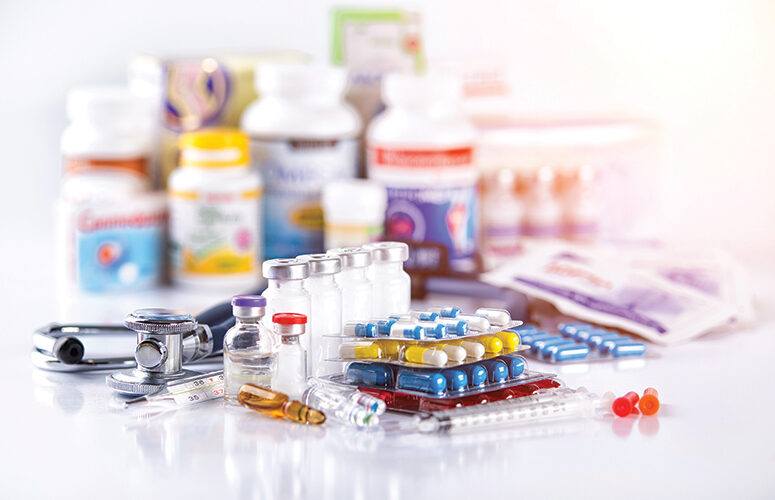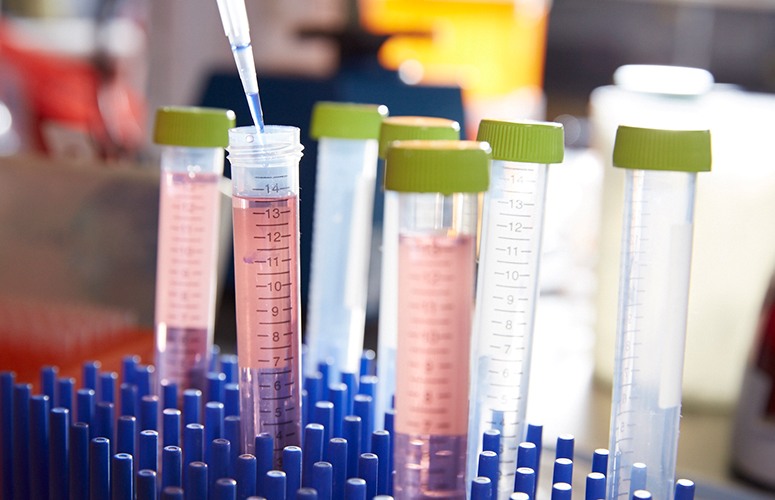
Life Sciences in New Jersey
The state’s life sciences industry plays a significant role in the fight against everything from cancer to COVID-19.
By Jennifer Lesser, Contributing Writer On Jun 2, 2021The life sciences industry has had a long and robust history in the Garden State, and thanks to recent advancements in the fight against COVID-19 by homegrown companies like Johnson & Johnson, the industry has never been more relevant.
“We are enormously proud of the fact that New Jersey has remained the cradle of the life sciences industry in the US,” says Dean Paranicas, president and CEO of the HealthCare Institute of New Jersey (HINJ). He explains that the life sciences industry has had a 135-year legacy in the state, starting with Johnson & Johnson’s inception in New Brunswick back in 1886. “Now, several other global companies have a major footprint in our state, including Merck, Pfizer and BD, and we’ve become known as the medicine chest of the world … and our goal is to maintain that title.”
And that’s exactly what seems to be happening. According to Paranicas, the industry is responsible for some $83 billion a year in both direct and indirect economic impact. The life sciences in New Jersey represent about 13% of the state’s GDP, and the industry is responsible for approximately 430,000 total jobs, or about 10.6% of all jobs in the state. “If you roll it all together, you’re looking at about 950,000 New Jerseyans who are economically touched by the life sciences industry,” he says.
“We have a tremendous representation of biopharmaceutical companies in New Jersey. Those early companies establishing themselves here truly became the basis for what we have today,” adds Debbie Hart, president and CEO of BioNJ. “The industry has grown to 3,200 facilities, which doesn’t even include all of those who support the growth of the life sciences in our state, from clinical research organizations to attorneys and accountants to manufacturing facilities – not to mention the ongoing support of academic institutions and our state government.”
Of course, it would be impossible to discuss the life sciences industry in New Jersey in 2020-2021 without highlighting the significant impact that local companies have made in the fight against COVID-19. From Rutgers University’s release of the first saliva-based diagnostic test to Johnson & Johnson and Pfizer becoming two of only three pharmaceutical companies to produce a widely-distributed vaccine nationwide, the Garden State has played a crucial role in the fight against COVID-19. According to Hart, the state is now home to approximately 70 companies with programs developed to combat the pandemic, from vaccines to therapeutics to testing protocols.
“The contribution of companies in our state has been extraordinary, tremendous and ongoing. These companies jumped in from the moment this virus was identified in late 2019, and have since developed diagnostic tests, therapeutics and, of course, the vaccines in an extraordinarily short period of time,” Paranicas adds. The state has also become a hub for strategic planning, research and development, and clinical trials, and has also made a significant commitment of both financial support and donations of personal protective equipment (PPE) for those in need throughout the pandemic.
And how will the fast-tracked processes that helped get COVID-19 tests, treatment and prevention to market impact the industry in the future? Paranicas is confident that the pandemic has inspired industry leaders to take a fresh look at many of these processes … and they could become standard operating procedures moving forward. “It has always been hard to raise money and bring a drug to market. There are lots of processes and pressures and hurdles to jump through,” Hart confirms.
Despite its recent breakthroughs, the state’s life sciences firms continue to face challenges that are sometimes unique to operating in the Garden State. Paranicas points to drug pricing legislation at both the state and federal levels, attempts to preserve both the local and national innovation ecosystem, and the ongoing fierce competition for life sciences investment both in the state and across the globe as significant challenges. “Legislation has been introduced over the past few years that, if enacted, could devastate the life sciences industry and threaten our ability to continue to innovate because the resources simply aren’t there,” he adds, pinpointing H.R.3, a bill designed to lower drug costs, as potentially the most impactful.
While the focus of the past year has seemingly been solely on COVID-19, the state’s life sciences industries have also been making strides in a variety of other clinical areas. Paranicas notes that HINJ members have been focused on innovations in everything from cancer immunotherapy, diabetes and cardiac conditions to joint replacements and mental health.
The state is currently ranked No. 1 in the country for its work in the development of heart, stroke and cancer treatments, and according to Hart, oncology remains the No. 1 area of research in the state. “A lot of innovation has occurred here in New Jersey, and continues to occur here in New Jersey,” Paranicas concludes. “We have all the ingredients to continue to remain a global hub for life sciences and innovation for decades to come.”
To access more business news, visit NJB News Now.
Related Articles:





